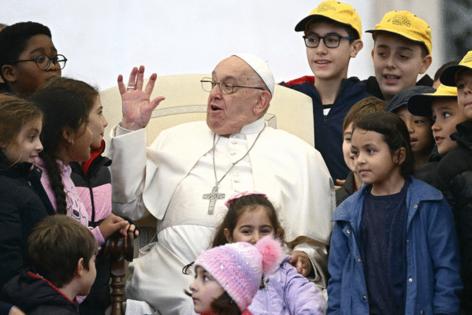Commentary: Child victims of crime are not heard
Published in Op Eds
Nothing is worth more than the life of a child.
—Pope Francis
Justice is not swift for anyone, and even less so for children. In Mexico, as in many other countries, children who are victims of crime must face not only the pain of what they have lived through but also institutional slowness that, far from protecting them, exposes them to new forms of harm.
If we were to truly act on Pope Francis’s reminder that "nothing is worth more than the life of a child," then why doesn’t the judicial system operate with that same urgency?
Since January, a seven-year-old girl in Mexico, a survivor of sexual violence at her school, has been waiting for a federal judge to resolve an amparo, a constitutional appeal she filed requesting the right to participate in the criminal case against her aggressor in a protected and adapted manner. According to the Supreme Court of Justice of the Nation (Mexico’s highest court), amparos must be used as urgent remedies when fundamental rights are at imminent risk. And yet, four months have passed with no resolution.
The judge argued that “all matters are urgent” and that “everyone has the right to equal treatment.” While this sounds neutral, it actually perpetuates injustice: treating the needs of a child victim of sexual abuse as interchangeable with those of any other adult litigant dilutes the principle of the best interests of the child, which is enshrined in the Mexican Constitution and in international treaties such as the UN Convention on the Rights of the Child (CRC).
Although Mexico ratified the CRC more than 30 years ago, the country continues to violate it by failing to ensure that its protections are fully applied in day-to-day judicial practice. The existence of strong laws is not enough when courts, prosecutors, and institutions do not translate those rights into action.
In international law, this lack of implementation is itself a breach of Mexico’s obligations. Meanwhile, the United States, while not having ratified the CRC, has adopted many of its principles into federal and state law, particularly in areas related to child protection and juvenile justice.
The UN Committee on the Rights of the Child has made it clear: Children have the right to a justice system adapted to their age, including prompt and priority attention, precisely because waiting can cause revictimization. It’s not just about legal deadlines—it’s about cumulative harm, prolonged fear, and the perception that what happened to them is not important enough for the state to act.
This is not an isolated case. As a lawyer working to protect the rights of children in Mexico, I see it all the time: delays in protective measures, in forensic interviews, in court decisions. Sometimes, months or even years pass before basic protections are implemented. During that time, children remain exposed to further harm.
And the legal consequences can be permanent. Many caregivers eventually give up on the process out of fear or exhaustion. When they do, cases are closed and impunity takes root. According to Mexico’s National Institute of Statistics and Geography (INEGI), over 93% of crimes in the country go unreported or uninvestigated. For crimes against children, the number is likely even higher, due to fear, stigma, and lack of support.
This speaks to a larger truth: justice systems worldwide, including in Mexico and the United States, were designed by and for adults. When children are involved, they are often treated as exceptions or burdens. They are asked to recount traumatic experiences in detail, identify perpetrators, and repeat their testimony across different stages of the process. If they hesitate, contradict themselves, or forget which is developmentally normal, their credibility is questioned.
Meanwhile, official speeches echo the same message: “Children are a priority.” But they are not. Not when it takes more than four months to resolve a constitutional petition asking only that a child be allowed to participate safely in a judicial process. Not while protective measures go unenforced and case files sit untouched on desks.
States, not just Mexico, but everywhere, have a legal and ethical obligation to act with due diligence in cases of violence against children. This means preventing abuse, investigating reports, and prosecuting perpetrators quickly and effectively. It also means recognizing the emotional and developmental harm that judicial delays cause. Because when justice is too slow, it becomes another form of violence.
As Pope Francis wisely said, "nothing is worth more than a child's life." And yet, every day that passes without resolution in cases like this one is a practical denial of that truth. If we want judicial systems to be places of protection and not abandonment, we must prioritize children, not just in words but in law, policy, and action.
_____
Daniela Torres, lawyer defending the rights of children and adolescents, is a Public Voices Fellow on Prevention of Child Sexual Abuse with The OpEd Project.
_____
©2025 The Fulcrum. Visit at thefulcrum.us. Distributed by Tribune Content Agency, LLC.

























































Comments